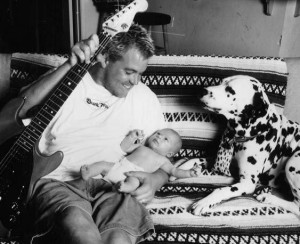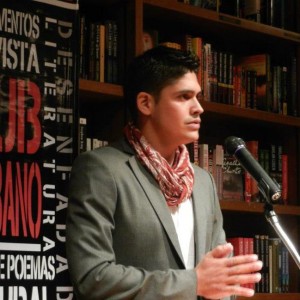Sublime and the Drugs
By Gonzalo Salinas
On May 25th 1996, Bud Gaugh, drummer for the Californian band Sublime, reported to the police that his friend Brad, leader of the band, had disappeared. After trying to call him ten times he stopped because it kept going directly to voicemail. Nobody had any information.
It had been a wild night: they played at a festival in San Francisco and after searching without any results, Bud returned to the hotel where the band had stayed the previous night. The manager opened the room that was supposedly empty and both found a somber scene: Bradley James Nowell was kneeling on the floor with half his body on the bed. On the bed was a puddle of vomit and Bud thought that after the concert Brad had gotten drunk and passed out before even being able to get in bed.
When they moved him, a more serious picture emerged. Next to him were needles, a lighter, and a small bag with white powder. Bud brought his face to Nowell’s chest, confirming that his heart was not beating. The police statement declared that Bradley James Nowell, 28 years old, died from a heroin overdose that stopped his heart. He could have been saved but nobody was present to help him in that lonely hotel room.
Two months after his death, the album they had been working on for the past year was released. Then came the avalanche of success. For several months, they were ranked first in the Billboard Rock charts, they made the rotation on MTV, won gold and multiplatinum records, and Rolling Stone magazine awarded Sublime’s album as the best of 1997 thanks to hits like Santeria and What I Got.
Bradley Nowell left an important legacy, influencing singers like Ben Harper, John Mayer, Jason Mraz, and Jack Johnson. He also left behind an 11-month old orphan, a wife, a band, and a Dalmatian. He never enjoyed his fame or wealth. He made bad decisions and the heroin ultimately stopped his heart.  Brad Nowell was perhaps a reminder to us all of the consequences of these excesses and where they lead us.
Brad Nowell was perhaps a reminder to us all of the consequences of these excesses and where they lead us.
Today we live in a world where mind-altering substances – and we’re not just talking about drugs – often dictate our choices. It’s not ‘over there,’ and it’s not ‘them.’ It’s us. It’s people just like you and me.
It is common for people to live with some sort of addiction, be it hard drugs, soft drugs, or even legal drugs such as alcohol and tobacco. The frenetic rhythm of our society has created other addictions as well, many not yet officially recognized; coffee, video-games, media, pornography.
Today, when debates are held in Uruguay (as well as in numerous state houses across the USA) to decide the legalization of marijuana, people on both sides are writing articles, granting interviews, and opining left and right on a subject that needs to be honestly faced in the entire western hemisphere. If the senate ratifies the law approved by the chamber of legislators, Uruguay will have taken the first step that will serve as an example for Latin America. Not so much to decide whether we are for or against the matter, but as a statement that actions are being taken on a cancer that is having a profound impact on our society. The drug economy, as noted by Moises Naim in his book, “Illicit: How Smugglers, Traffickers, and Copycats are Hijacking the Global Economy,” doubled from 1990 to 2002, without calculating the parallel powers it creates, the mafias and the cost that the ensuing crime has on governments.
Being for or against decriminalization, the “war on drugs” is a war that was lost at the beginning, and our action is needed now. Many of us and our fellow beings live in a state where we need a substance to survive and “bear” life. How do we get back to a healthy balance point? Where is the emotional health of our society standing? Do we fill in the gaps in our spirit with addictive substances or compulsive behaviors to forget reality?
Many of us, in our daily activities, are using alternatives that bring us closer to sanity or the elevation of the spirit; yoga, exercise, meditation, ‘clean’ food, and appropriate amounts of rest that balance out the frenetic pace that our work requires. But this is far from the norm in our culture. We have arrived at an alarming moment.
Maybe it is time to consider that everyone has a personal responsibility in creating a healthy society. It begins with our own emotional sanity that will lead to a collective sanity. We can search for that sanity together, or we can keep running. And it will continue to cost us. When some substance or addiction that allows us to carry on with our lives slams into reality, when we have our own personal version of Bradley James Nowell’s story in our families.
Click here to watch the video Santeria by Sublime
– is a deeply personal issue that everyone decides for himself. Sometimes the price is high, sometimes low. But this is not very important for life. Life is an interesting thing. And the price on Viagra – too.


